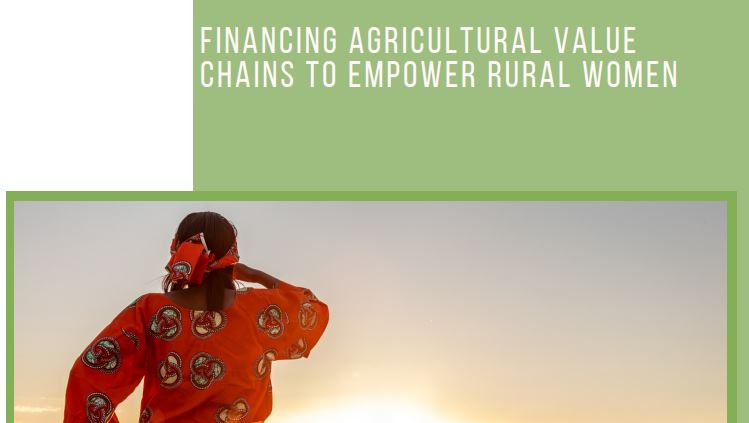The Pan-African Farmers Organization has published a new report on financing agricultural value chains to empower rural women.
The farmers organizations united within PAFO, as the most inclusive agricultural institutions, are committed to empowering rural women engaged in the agrosilvopastoral and fisheries
sector. They offer them spaces for advocacy around the concerns of farmers from the local to the global level and to help ensure their effective participation in various programs aimed at
strengthening their capacities. In some farmers’ organizations, women actively participate in governing bodies, which gives them the opportunity to get involved in policy formulation
processes in order to create an environment conducive to rural development, the eradication of hunger, eradication of food insecurity and malnutrition, but also to contribute to improving farmers’ incomes and empowering rural women.
Indeed, African rural women perform most of the agricultural work and cultivate more than half of the food globally, they are found in all links of the agri-food value chain. According to
the International Labor Organization, they produce 80% of the food and do most of the work of producing, storing, transporting and marketing products locally, nationally and
internationally. They often remain the main drivers of traditional value chains in local markets for fresh or processed foods such as vegetables, fruits, grains, tubers, dairy products
and fish.
One of the earliest comparative studies of developing countries found that between 1970 and 1995, 43 percent of progress in reducing hunger was attributable to advancing women’s education. This is almost as much as the combined effect of increased food availability (26 percent) and improvements in the sanitary environment (19 percent) during the same period. At 12 percent, the reduction in hunger was attributable to a longer life expectancy for women. For example, no less than 55 percent of the progress in food security in the study countries was due to improvements in the social status of women.
However, despite their contribution to global food security and sovereignty, rural women are frequently underestimated and forgotten in development and value chain financing strategies.
PAFO commissioned this study with a view to accelerating the improvement of the financing of women’s activities within agricultural value chains in order to achieve the achievement of Sustainable Development Goal 5, namely to achieve equality. gender and empower all women, especially those gathered within Farmers’ Organizations through strong advocacy for an environment conducive to the social and economic prosperity of women farmers.
Read the full report including The Levers on Which We Must Act to Empower Women in Value Chains and Levers Concerning Farmers’ Organizations in Support of Women in Agricultural Value Chains.


Comments are closed, but trackbacks and pingbacks are open.